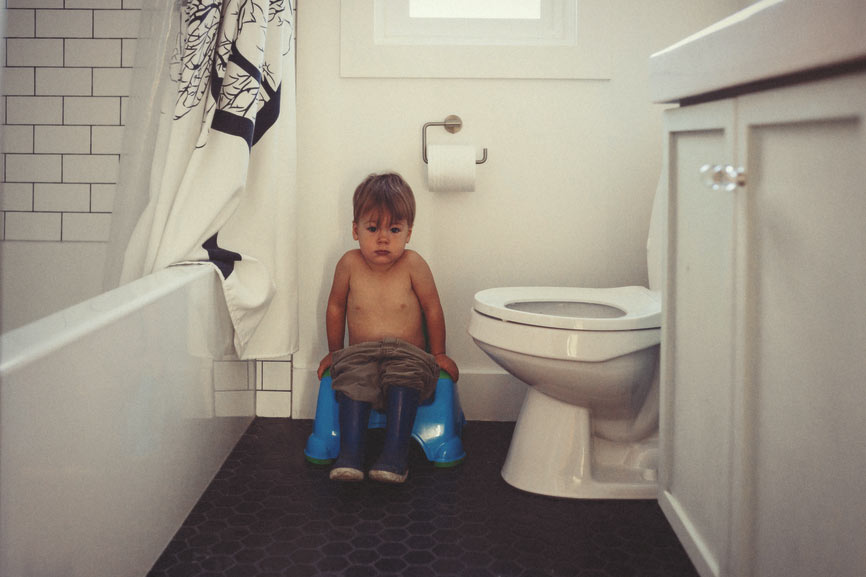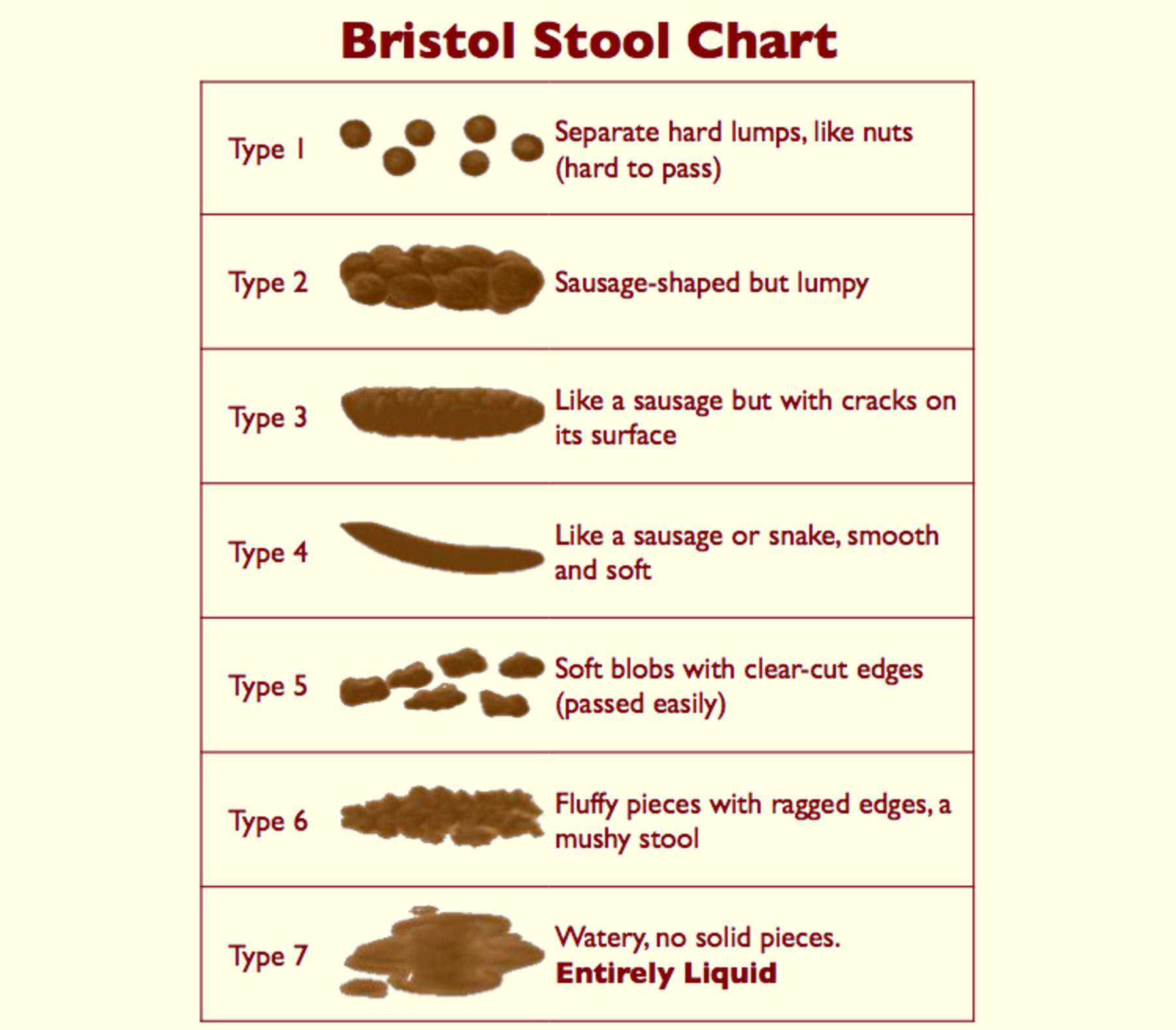
121—
Meditative Munching

When I was a child, my Dad would occasionally and expressly inform me that, ‘Everyone goes to the toilet, Kid’. I knew I was supposed to feel reassured by this, so I would knowingly squint my eyes a little and slowly nod my head in agreement…
But, I’ll admit that I had no clue what his ‘potty talk’ actually meant! Eventually I learned through watching him interact with the world. Dad is one of those people who doesn’t treat anyone differently — regardless of their social status. You could be a homeless bum or the Queen of England and he wouldn’t act any differently toward you. He never puts on ‘airs & graces’ for anyone. He’s just Mike. And you can like it or lump it.
My Dad was trying to teach me that fundamentally everyone is the same — no-one’s really special! No-one is better than you, or beneath you. And you may as well just get on with being you.
Now that I’m an adult and a trained Naturopath (and it is part of my job to talk to people about their stools), I discovered that my Dad’s ‘people poop’ philosophy was fundamentally flawed. What I thought was a solid foundation underneath me, started to feel more like shaky ground!
While everyone may go to the toilet (at least eventually), what I’ve come to realise is that you can establish quite an elaborate hierarchical system based purely on one’s pooping performance, or lack thereof!
Sadder still, is that many people are ultimately ruled by their bowels (and their diets). When you have ‘bad bowels’, it would seem you have no say in the (fecal) matter!
Note: Sorry to break it to you like this, Paps! I love yoooo! xo
Very few people like to discuss their bowel movements, as they find it an ‘icky’ or overly personal subject. Don’t worry, I get it! But really, we need to get over it! You should talk about your bowel motions, as soon as you start noticing that they are consistently straying from ‘the norm’. (Obviously this subject should be discussed with a health professional.)
People need to inspect their stools when the opportunity presents! It’s important to pay attention to your stools and to take the necessary measures to correct any imbalance. Because we essentially are what we eat, absorb and excrete — how you perform in this area is a very good indication of how well your body is functioning.
Note: The number of my clients who don’t look at the contents of the toilet bowl before they flush is staggering. So, I set them this task as a homework assignment — to be completed before their next appointment. (Book in to see me!)
Based on what I see in practice, I would estimate that at least 75% of people are suffering from ‘bad bowels’. They either have ‘IBS’ (where they alternate between constipation & loose stools), or they suffer from infrequent/too frequent bowel motions, or they have ‘urgent’ stools.

As a guideline, you should be looking at producing something relatively similar to the following bowel motion.
In fact, it should be extremely pleasurable to pass — to the point where you look forward to these occasions!
Your poo should come out in long segments and be well formed. They should also have a decent girth.
When you have finished, you should feel completely satisfied (like that was a job well done)!
Note: You shouldn’t be straining, getting ‘caught out’, or feeling like you will need to go back soon.
You should pass a stool approximately every 12-24 hours.
Note: Passing a stool every 12-24 hours gives your body a chance to extract goodness from your food, and to eliminate waste products.
It should be mid-brown in colour.
(It should not be red, black, yellow, or white!)
It shouldn’t look like food.
(There shouldn’t be bits of lettuce, or the remnants of beetroot, or the like, in the poo or in the bowl. Things that are hard to break down like corn, sesame seeds, and whole linseeds are an exception).
There shouldn’t be any blood or mucus — anywhere!
A floating stool suggests it is laden with fat, not fibre (unlike what a lot of people think)!
A ‘tacky’ poo is also indicative of fat being present in the stool. Tacky could mean that you have to use more than your fair share of toilet paper, or that the stool leaves ‘skid marks’ in the bowl.
Note: If are consistently producing ‘floaters’ then you may not be absorbing fat, or fat soluble vitamins in your diet.

Very few of my clients know what I’m talking about when I tell them that they should ‘come over all tingly-like’ when they need to do ‘Number Twos’. Pre-pooping should make you feel tingly in your buttock + upper leg region! (Or you might experience this as feeling “nervy”).
When fecal matter is forced by mass movements into the (usually) empty rectum it stretches or distends the walls. This initiates the defecation reflex. This is a message sent via your nervous system to your spinal cord and back again, which stimulates the contraction of the rectal walls and the opening of the internal sphincter (which is an involuntary opening). This neuronal activity should make your bits feel quite ‘buzzy’.
At this point, you may use your free-will to decide whether or not you’ll open your external sphincter and defecate. If you decide it’s not convenient to do so, the reflex contractions will cease within a few seconds. (And your rectal walls will relax.) This DEFECATION REFLEX will be activated again with the next mass movement (peristalsis). It will continue this process until you deem it time to poo, or until your body decides it’s a matter of urgency!
Note: It is important to try to defecate whenever you receive these pre-warning ‘tingles’. If you ignore them too frequently, your body may stop ringing ahead – and then your poos will just turn up willy-nilly!
If you come to me complaining of constipation, the first things I’ll cover-off with you are:
— Are you drinking enough water for your body weight?
— Are you eating enough fibre: primarily veggies + fruit + nuts + seeds?
— Are you exercising enough?
— Are you taking a protein powder supplement? (These are known to create constipation)
— Are you taking a medication that you may not realise has constipation as a side-effect?
If after following my advice, and readdressing the situation, you find that you’re still not producing a satisfying stool, then I’ll recommend a natural laxative that is suitable for you. I like to refer to your different options as:
‘Poof’ up in your gut when you add water. This creates distention, which is the stimulus your bowels require to make you evacuate.
Examples include:
Slippery Elm, Psyllium (pronounced syl-ee-im), and Chia Seeds
Note: Conversely, if your stools are too loose, or appear too frequently you can also use ‘Bulkers’. The amount of water used with them is simply reduced.
Please see my post on Slippery Elm for instructions on how to use this herb for either condition.
These pull water out of your body and into your bowel, ’flushing’ out the stool
Note: Examples include: Magnesium Oxide and Lactulose.
These irritate the lining of the bowel, effectively ’shaking’ out the stool
Note: Examples include: Senna and Cascara (herbs)
If these agents don’t ‘do the trick’, then I would recommend you make an appointment to sit down with me. You may have a problem with how your organs are functioning i.e. thyroid, liver, stomach, or (obviously) bowel. This could be due to certain deficiencies in vitamins, minerals, or amino acids. You could also be suffering from food intolerances or sensitivities.
If you’re experiencing too frequent stools (more than two poos daily), or if you’re experiencing urgency, then you should see a Naturopath. We can assess what might be irritating your intestinal system, and/or your nervous system.
Note: We won’t simply tell you that you have intestinal irritation (IBS) without trying to find the cause.
If you aren’t going to the toilet as much as you would like, and you’ve considered everything that I’ve said above, then it is possible that you have an issue with your stomach, rather than your intestines. Food entering the stomach is the stimulus for peristalsis to begin (the movement of food along the gut lumen).
Your stomach also fires up your other digestive organs to aid the elimination process. For example, the stomach activates the gallbladder to release bile — which is your body’s natural laxative.
A Naturopath can help to promote proper stomach function. (Which also can help to lessen the effect that food intolerance may play in loose or infrequent stools.)
Lisa Fitzgibbon is a degree qualified (2006), experienced and registered Naturopath & Medical Herbalist. She runs her own private practice – OOMPH in Grey Lynn, Auckland, New Zealand.
Lisa has been involved in the Natural Health industry for 16 years. She draws on her professional training and experience, as well as her own personal experience to bring you realistic, holistic health advice.
Book onlineSubscribe to LISA SAID SO
Subscribe to the LSS newsletter to get updates on a very irregular basis.
Sorry for the interruption!
You seem to be interested in what Lisa has to say. To be updated when new articles are published, or we have news to share, enter your email below. Thanks!